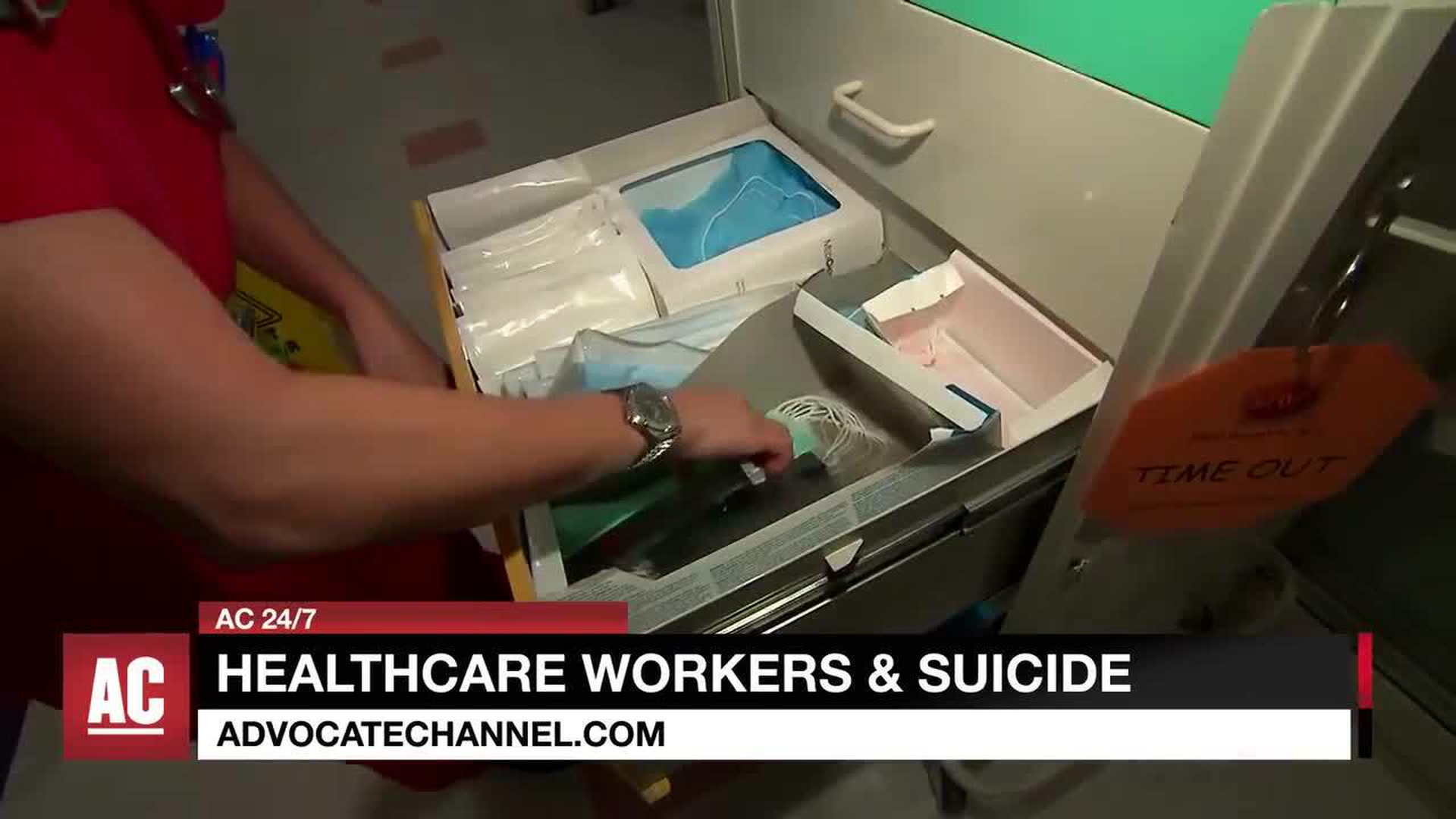
Video Source: Advocate Channel
(CNN) — Researchers from the US Centers for Disease Control and Prevention are sounding the alarm on a mental health crisis for health workers around the country.
Using nationwide survey data between 2018 and 2022, a new report from the agency found that nearly half of health workers reported feeling burned out in 2022, up from under a third four years prior. Health workers’ reports of being harassed at work more than doubled, as well.
The report, released on Tuesday, also shows that health workers face worse mental health outcomes than employees in other industries.
The findings come on the heels of the largest health care worker strike in US history, in which 75,000 unionized employees of Kaiser Permanente cited feelings of burnout and chronic staffing shortages during a walkout in five states and the District of Columbia.
“While usually health workers care diligently for others in their time of need, it is now our nation’s health workers who are suffering, and we must act,” said Dr. Debra Houry, the CDC’s chief medical officer.
Even before the pandemic, Houry added, health workers’ jobs were demanding: Providers face long hours and unpredictable schedules, exposure to infectious diseases, and often-challenging interactions with patients and their families.
Previous research has found that health care workers — especially nurses, health support workers and health technicians — face an increased risk of suicide compared with people who don’t work in the medical field.
“Caring for people who are sick can also be intensely stressful and emotional,” Houry said. “Although you do everything you can to save a life, I still remember some of the tough patient cases I had, where I gave the bad news about an advanced cancer diagnosis to a working spouse or the time I was unable to resuscitate the young toddler after a car crash.
“After a shift like this, I would have to put on a good front and take care of my own family. And in doing this, I didn’t always pay enough attention to my own wellness needs.”
According to Houry, the Covid-19 pandemic made workplace challenges worse, with health care providers facing a wave of patients, long hours and supply shortages. Those stresses fueled a rise in mental health complications, suicidal ideation, and like large parts of the US adult population, substance abuse challenges.
The study found that health care workers reported an increase in poor mental health days between 2018 and 2022. In the survey, 44 percent of health workers reported wanting to look for a new job, up from 33 percent in 2018.
In contrast, the number of other essential workers who intended to look for a new job dropped over the same period.
Meanwhile, the number of health care workers who experienced harassment — including violent threats, bullying and verbal abuse from patients and coworkers — shot up from 6 percent to 13 percent during the study period.
According to the CDC report, harassment had major impacts on health workers’ mental health: Health workers who reported being harassed were 5 times as likely to report anxiety compared to those who were not. Those who faced harassment were over three times as likely to report depression and nearly six times as likely to report burnout, as well.
For instance, 85 percent of health workers who experienced harassment reported feeling anxiety, compared with 53% of those who did not. Sixty percent of harassment victims reported experiencing depression, nearly double the number of health workers who had not suffered harassment.
Those consequences, however, are preventable with improved workplace policies and practices, the report says.
The study found that health workers who trusted their management, had enough time to complete their work and received support from supervisors were less likely to report burnout.
“We’re calling on employers to take this information to heart and take immediate preventive actions,” said Casey Chosewood, director of the National Institute for Occupational Safety and Health’s Office for Total Worker Health. “Supportive work environments had a positive impact on health workers.”
The report also recommended that employers encourage “cross-level employee participation” in decision-making: health workers who helped with decision-making had about half the likelihood of reporting depression symptoms. Chosewood recommended that supervisors support their employees by monitoring staffing needs and seriously addressing harassment reports.
The CDC’s National Institute for Occupational Safety and Health also plans to launch a national campaign this fall to help hospital leaders address challenges to health workers’ well-being — part of an ongoing initiative by the agency to raise awareness about health workers’ mental health challenges.
“The bottom line is this: We must take the research we have and act,” Chosewood said. “To label our current and long-standing challenge a ‘crisis’ is an understatement. Patients in our communities, really all of us, will fare better when our health workers are thriving.”
The-CNN-Wire
™ & © 2023 Cable News Network, Inc., a Warner Bros. Discovery Company. All rights reserved.


















































